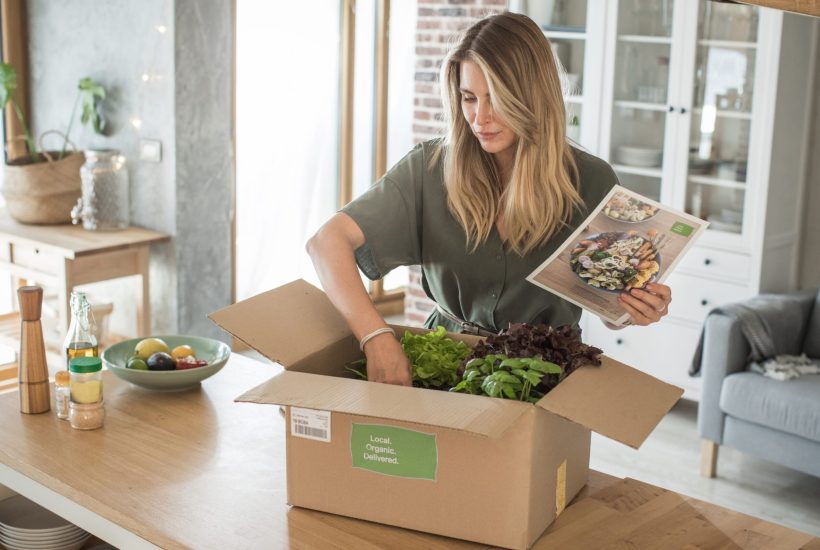The Compass Group boast of serving 5.5 billion meals a year, so you might think they would be good at it. Rather they walked into the most grotesque crisis of the pandemic with their subsidiary Chartwells: catchphrase ‘Eat, Learn, Live’. I might steal that. I am stockpiling one syllable words. When deputised to provide a week’s worth of school lunches to children eligible to receive free school meals, Chartwells sent food boxes so meagre that parents posted photographs of lonely carrots online. Perhaps the Compass Group was compensating for an operating profit of a mere half a billion pounds in 2020 when they are used to three times that. The cruelties of pandemic are so many!
The boxes were supposed to contain £30 worth of food. In one case it was as little as £5.30, though, incredibly, it looked like less. It looked like remnants of remnants, and food for pigs. But what, you might ask, are vulnerable children’s stomachs for, but to ease Compass towards a more comfortable margin? Chartwells, I must add before lawyers insist on it, did grovel via press release, free breakfasts, and tweets praising Marcus Rashford.
What is misery for some is opportunity for others: we have had, in that gruesome phrase, a national conversation about what £30 of food looks like. For Rick Stein it is half a lobster; for the Cereal Killer Café it is 7.5kg of Kellogg’s Frosties; for Berry Bros & Rudd it is two thirds of a bottle of Australian Three Oaks Chardonnay; for Morrisons supermarket it is a food box of ‘five meals to feed a family of four’, gaily marketed on the wings of Chartwells’s disgrace. This is competitive empathy from supermarkets. I can’t wait for them to get into mental health provision.
We open the Morrisons box and begin by making spaghetti and meatballs: fry the onion with garlic; add the mince to brown; roll into small balls, bake and add to a tin of tomatoes and stock. Recipe cards are included, which is both useful and depressing. I could moan that they sent three pots of dried parsley and omitted the dried thyme, but that seems petty when each meal is £1.50. We cook the spaghetti, grate the cheese, and serve it. It looks like the photograph, it tastes fine, and I feel imprisoned in a balanced meal, both grateful and sullen.
We turn next to chilli con carne. Again, it feels bland — chilli powder is bland if it provides only a fierce monotone. Then we make a leek and mushroom pie, which pleases me, because I do not normally bake. I wrote last time of how the apron can be a garotte. For example, I made soup once, and I was not pleased with it, so I never did it again. This is better though: the mushrooms are blackened and juicy; the leek is tart, the colour of peridot; and the Aga, which has assumed the character of late Bette Davis, consented not to burn the pastry. ‘Rolling out shop-bought pastry isn’t baking,’ says Andrew, preening. ‘Don’t lie to the readers.’
I feel nourished but not replete; appreciative but not happy. This is dull food for dull times (if you are not destitute, dying or dead) and quite close to functional eating — that is what the £30 is for. It does not make for interesting criticism. The final meals are vegetable curry and sausage and bean stew. The sausages need to be boiled. They taste OK — I substituted beef sausage for pork — but it adds to the sensation of eating in 1912.
My husband says our meals could always be like this if I paid proper attention to the weekly Tesco order, but I prefer to visit the village butcher daily. In pandemic she feels like my only friend, and the selection of dead flesh my only jeopardy.
Got something to add? Join the discussion and comment below.
Get 10 issues for just $10
Subscribe to The Spectator Australia today for the next 10 magazine issues, plus full online access, for just $10.
www.morrisons.com
You might disagree with half of it, but you’ll enjoy reading all of it. Try your first month for free, then just $2 a week for the remainder of your first year.















Comments
Don't miss out
Join the conversation with other Spectator Australia readers. Subscribe to leave a comment.
SUBSCRIBEAlready a subscriber? Log in